Nyokabi Kariũki on how she used field recordings, text-to-speech AI and experimental plugins to make her debut album Feeling Body
The formally trained composer tells Kate Puttick how sound-journaling opened a world of experimentation to explore on her new LP
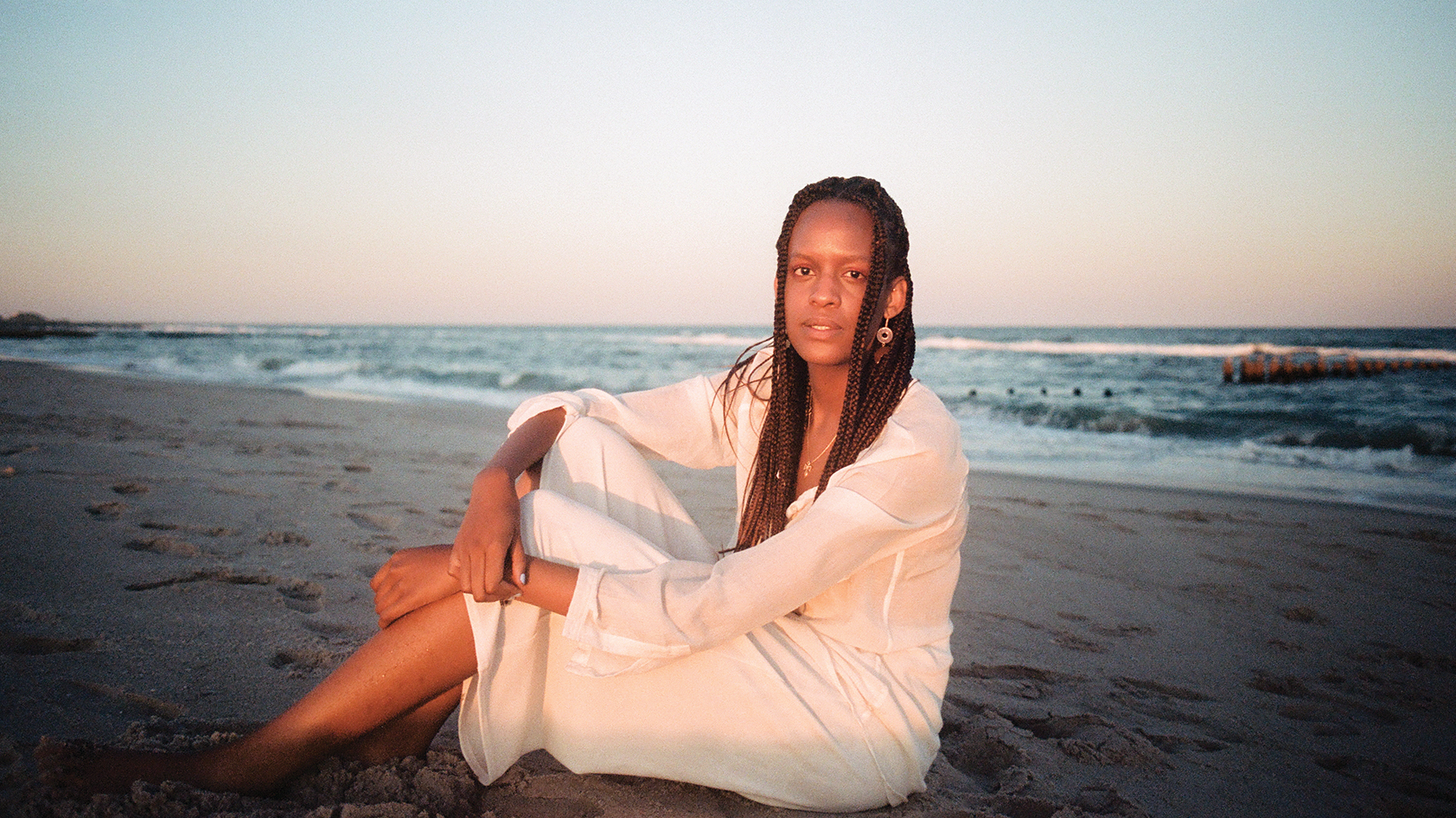
Nyokabi Kariũki is a master of understated atmosphere and expression, transposing seemingly intellect-led concepts into the reaches of heart and soul. The classically-trained, globe-trotting experimental artist and composer attended prestigious courses at NYU and IRCAM in Paris but only entered the electronic music world in earnest after finding the joy of sound journaling and field recordings during lockdown.
Her debut EP Peace Places: Kenyan Memories attempted to bottle the spirit of treasured locations in Kenya and was described, to great acclaim as “transcendent”. Her first full-length LP, Feeling Body, by contrast, brings things right back down to earth, to almost unsettling effect, exploring the emotional, physical and social contradictions of the experience of long COVID.
An accomplished performer, she has performed Peace Places with orchestral ensembles across the world, and is currently working on taking Feeling Body to stages over the upcoming festival season.
Given that your new LP is so personal, how has it felt to take it out into the world?
“I was nervous about people not wanting to engage with the record due to what it’s about. People not wanting to talk about being sick after COVID. That’s something that happened before, last year. I’d made a sound journal about the pandemic and a gallery in London was interested in showing some of my work and I had proposed a sound art film. They said, ‘I think we’re all a bit tired of hearing COVID-related stuff’. So I was nervous about the album. But I really appreciate people taking the time to sit with it even if it’s uncomfortable.”
Peace Places was hailed for its warmth and light, whereas Feeling Body is a lot less of a comfortable listen. Was it actually easier to go darker?
“That’s a funny question because I think, yes, it is easier. At college, the music I was writing was pretty much when I was sad. In a way, Peace Places was an anomaly. But even in that there was definitely also friction and tension. More subtly maybe. So it was a nice surprise when people chose to interpret it in a more positive way.
Want all the hottest music and gear news, reviews, deals, features and more, direct to your inbox? Sign up here.
“But, for example, in Peace Places there’s a piece called A Walk Through My Cucu’s Farm – Cucu is what I call my grandma in Kikuyu language. And it’s a beautiful piece exploring that place. But I was telling a friend, because I don’t necessarily speak good Kikuyu, my repetition of various phrases is about showing the limitation of not being able to communicate with my grandmother. So yes, there were dark places in both. But maybe it’s just not as obvious as in Feeling Body.”
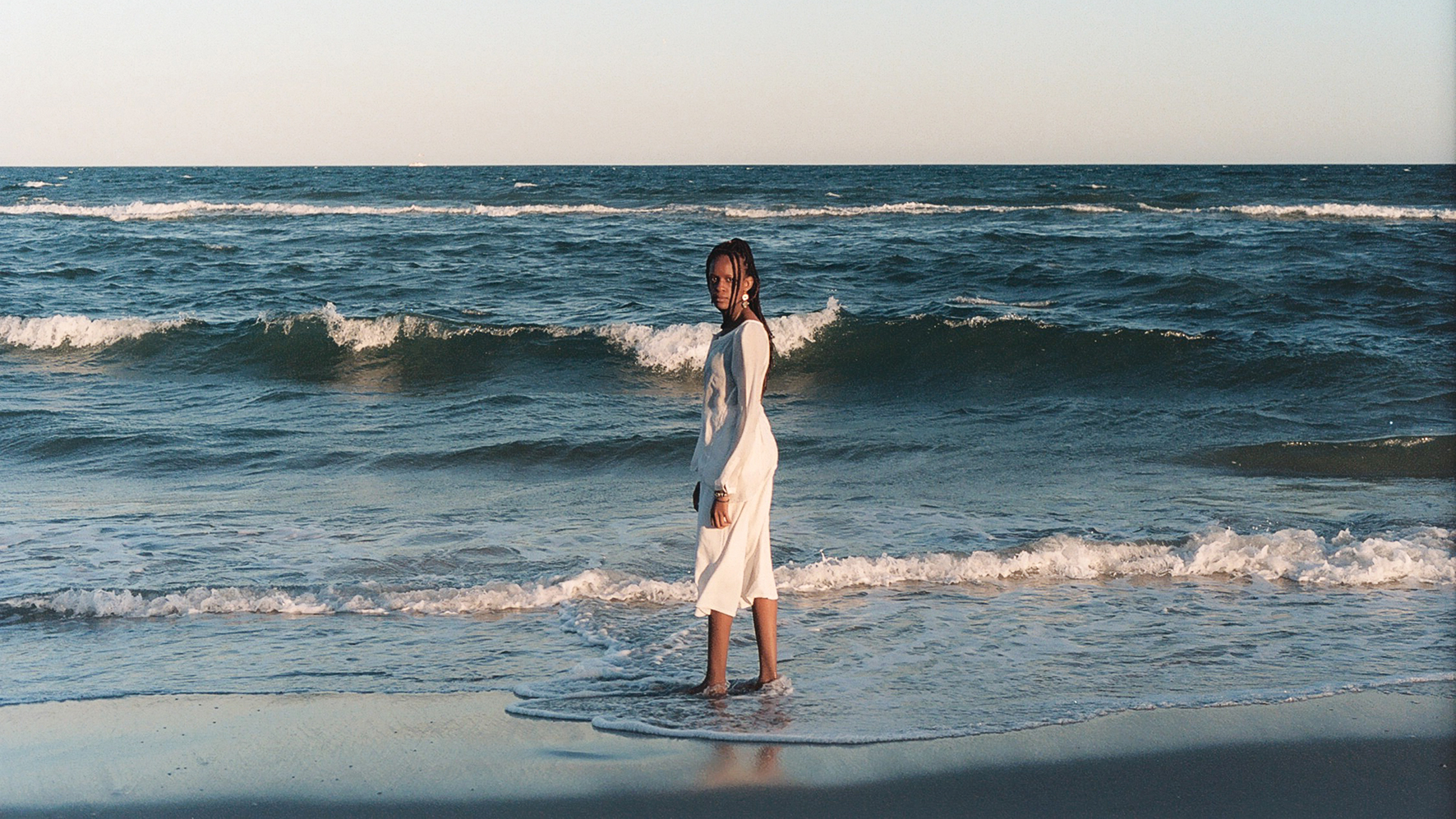
Where do you feel that Feeling Body sits in your catalogue of work?
“One thing I’m really excited about in this record is that it’s one where I’ve fully leaned into my voice. I didn’t get any formal training in singing. It was only during my time in university in the third year that I had a songwriting teacher and there was something she said that pushed me to using my own voice. ‘You’re not the best singer and your voice is kind of weird but you should sing your own songs.’
“And I thought, actually, I like that, I’m OK with that. My background is composition and I’d give sheet music to singers and my songs would come out very differently. I realised it was because I was tracing the way my own voice sounds. With Peace Places it was very much about field recordings and my voice was in there but it was different in Feeling Body.”
When did you first get into sound journaling and field recordings?
“I was never making electronic music that much – just something I was dipping my toes into. Never part of my practice. Then during the pandemic, in my last semester, I was writing lots of concert music for my senior recital and the pandemic happened three or four weeks in and they said, you can just hand in your scores. This didn’t sit well with me because the content of those pieces were very ‘celebration-y’ but it didn’t make sense as we were in a very scary time.
“As a composer I’m very interested in how something will be experienced. Electronic music started to fascinate me in that way in the very digital period we are now in. I hated these attempts of getting multiple players in a Zoom call or whatever. That wasn’t how I wanted my music experienced. And then, with the help of a different songwriting tutor who was monumental for me, I got inspiration in quotidian things, and that morphed into the idea of recording the same sounds every day.
“It worked because it allowed me to check my emotional temperature and the pandemic was so strange. So this allowed me to be very continual in my creation while still allowing space if I wanted to write a lot of music. Some entries were long and some were short. It gave me flexibility. So I accidentally started a kind of practice. I haven’t journaled in the same way since.”
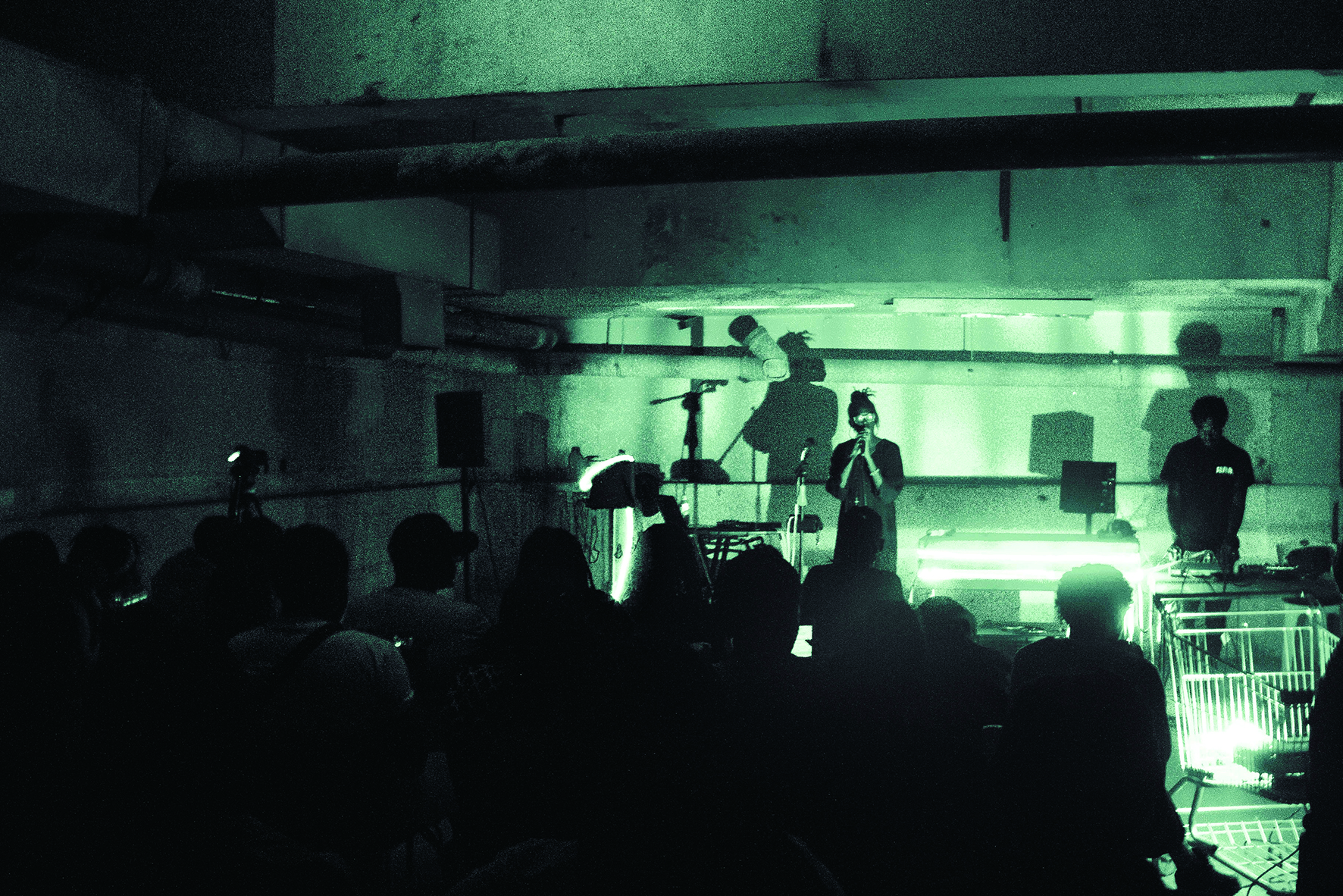
Tell us a bit more about your work with the OneBeat/FoundSoundNation podcast [in which Kariuki explores the culture of archiving, past and present, in Kenya]. That seems to have allowed you to really dig deep into archives and your wider cultural interests?
“I think a lot about where I’m from: our history and what we were told it is. And I think about where it’s going. Receiving a very Eurocentric education in classical music, I again, during college, started to question so much. My minor was in creative writing and I was always enquiring about colonialism. I’m obsessed with language and linguistics and my writing was challenging a certain thing: the fact that I don’t speak the language of the place I’m from, and wanting to explore how that happened. But it took my music a little bit of time to catch up.
“There is some research I’m undertaking with regards to how to position African thought. So much of the way that people talk about African music is in a very technical way, and it’s very interesting and cool; polyrhythms and all of these things. Schools of practice and the way that it was created. I have been trying to figure out how to explore more of what that was. There won’t always be a lot of writing on that. A lot of it was taken away during colonisation. Because the methods through which knowledge was passed on was sound. Which is something I’m loving about being a music-maker and playing a little part in evolving how we perceive sound.
“Field recording for instance seems such a natural way of continuing that method. A lot of research is involved. Understanding some of the African musicians who were experimenting way back. Halim El-Dabh created one of the first instances of electronic music four years before Pierre Schaeffer more famously debuted his in 1948. I did a semester at IRCAM in France and never heard about that…”
How do you typically conceive of work?
“There’s definitely a nesting period, where my brain sparks an idea. Usually there’s a very specific aesthetic in mind. I have no idea how to describe it. Maybe a word. Like Feeling Body – I knew instantly the colours it would be. Sound and colour. I think I have something of a synaesthetic relationship with sound and colour. Sometimes I can imagine what it’s going to sound like and when I sit at the computer I’m able to figure that out.
“But sometimes it’s just that I think “I’ll start a track” and let it blossom. Something like Nazama, it happened very quickly: a choral motif that just grew from there. Something like Quiet Place – my favourite track on the record – I was introduced to the GRM Tools plugins and messed around with it. It created a spatial, experimental effect when I said that one phrase. It’s always interesting to look back on it because often I just cannot remember. Maybe I should journal it!”
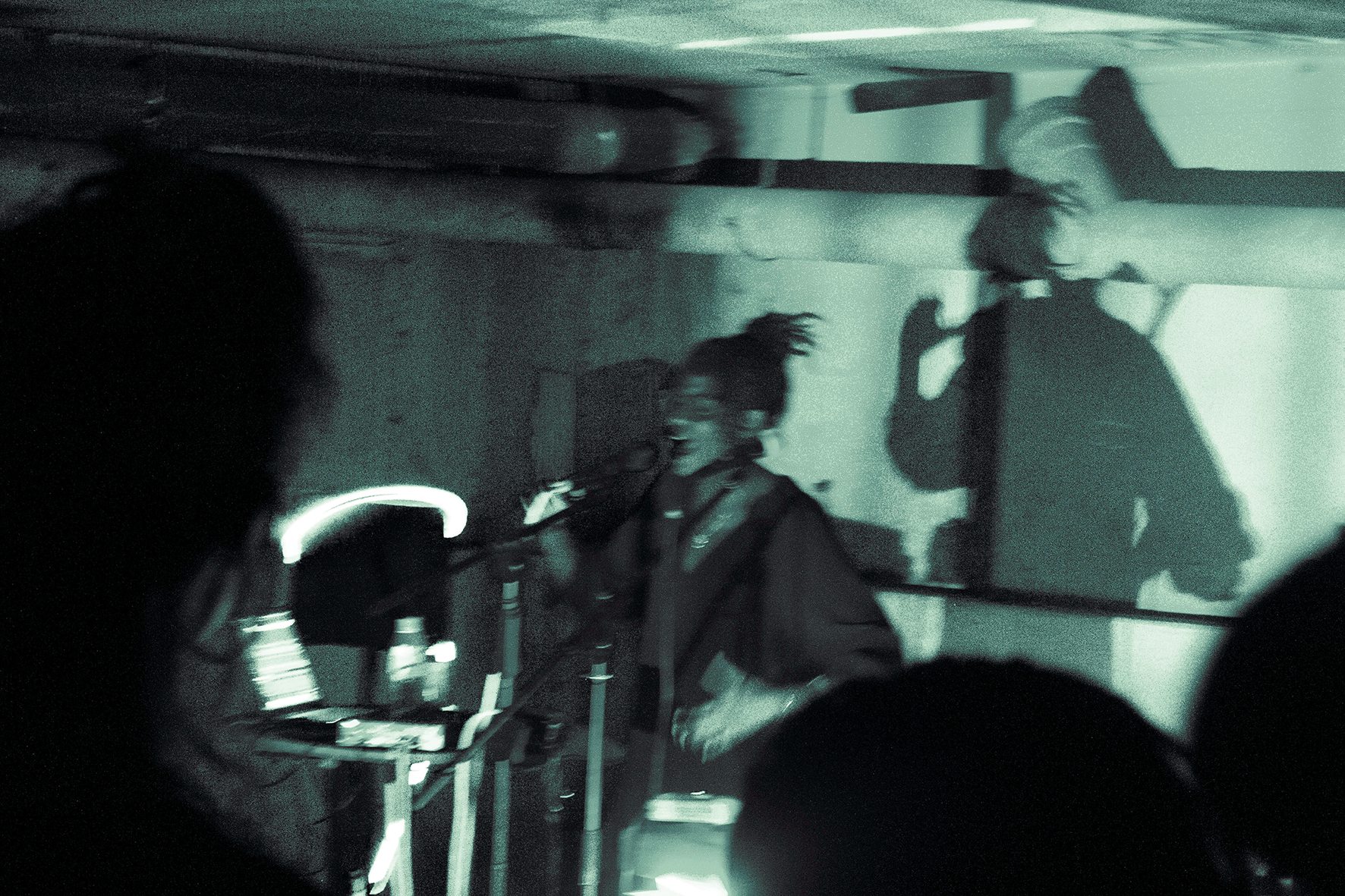
What sort of tools do you use, both instrumentation and for sketching things out?
“This is something I’ve only been aware of looking back. I barely use any synth sounds in my work. All of the sounds are field recordings, acoustic or my voice, apart from some basses in Quiet Place, arranged in Logic. It was interesting to realise that, subconsciously. But that’s part of why it’s an interesting process. I go where the sound takes me.
“For this one, I knew I wanted violin, trumpet and collaborated with two friends, and gave them a score based on text. Prompts like, ‘I wonder if morning is the same pitch as the evening one’. I wasn’t sure about how I would use them. Some of them are really chopped and looped over. In Feeling Body, there’s one note with a specific attack that spoke to me. Sometimes I take a chunk of what someone has done and use it. It’s very different from music notation. It’s like clay that you can use to mould something.”
How much of the field work you gathered made the cut?
“30 percent? Not so much. I find myself caught up in the minutiae. Little moments. If I find some effects or plugins, it really changes what the original sound is. It’s the same thing with my voice. It’s really fun to just make a weird sound. Sometimes I remember my face when I make something and think ‘I was joking when I did that!’ but it turned into something that people really dig, so… there’s a lot of ‘going along with the weirdness’ [laughs].”
You’ve embraced AI voices and mechanical sounds for Feeling Body. Tell us your thoughts behind that…
“There’s definitely something to say about that. I kind of joke that most experimental musicians go through a text-to-speech phase, and maybe this is mine. So many artists have that stuff going on.”
It’s on all of our minds!
“I think in this situation it’s coming from the fact that I was talking about something that was painful for me and I wanted to protect myself. I didn’t want to exploit that pain to make something. It’s something I knew that I would do at college. Sometimes in a healthy way and sometimes I’d conjure up something in order to make something. Which is not something artists need to do in order to make good work. It would mess me up.
“And so with this one, I wanted to be very cognisant of my own emotional health while making the record. With Fire Head I wanted to explore this issue of how people don’t know how to talk about chronic illness. It’s either you have a cold that goes away, or you’re dying. There’s no way we engage with chronic illness. I did one take with this phrase ‘they stopped asking if I was OK’, with my own voice, and I realised it was very painful and that I don’t need to do it that way. It was hard to repeat by myself. And text-to-speech jumped into that role.
“It makes it so cool. It gives it a very different effect than if it was my voice. In Feeling Body, the second track, I also use it, I found a really good website with text-to-speech in Swahili. The ones on our laptops aren’t good, but this was. I was able to do it in Nairobi in January and it was so cool to engage in languages in this way.”
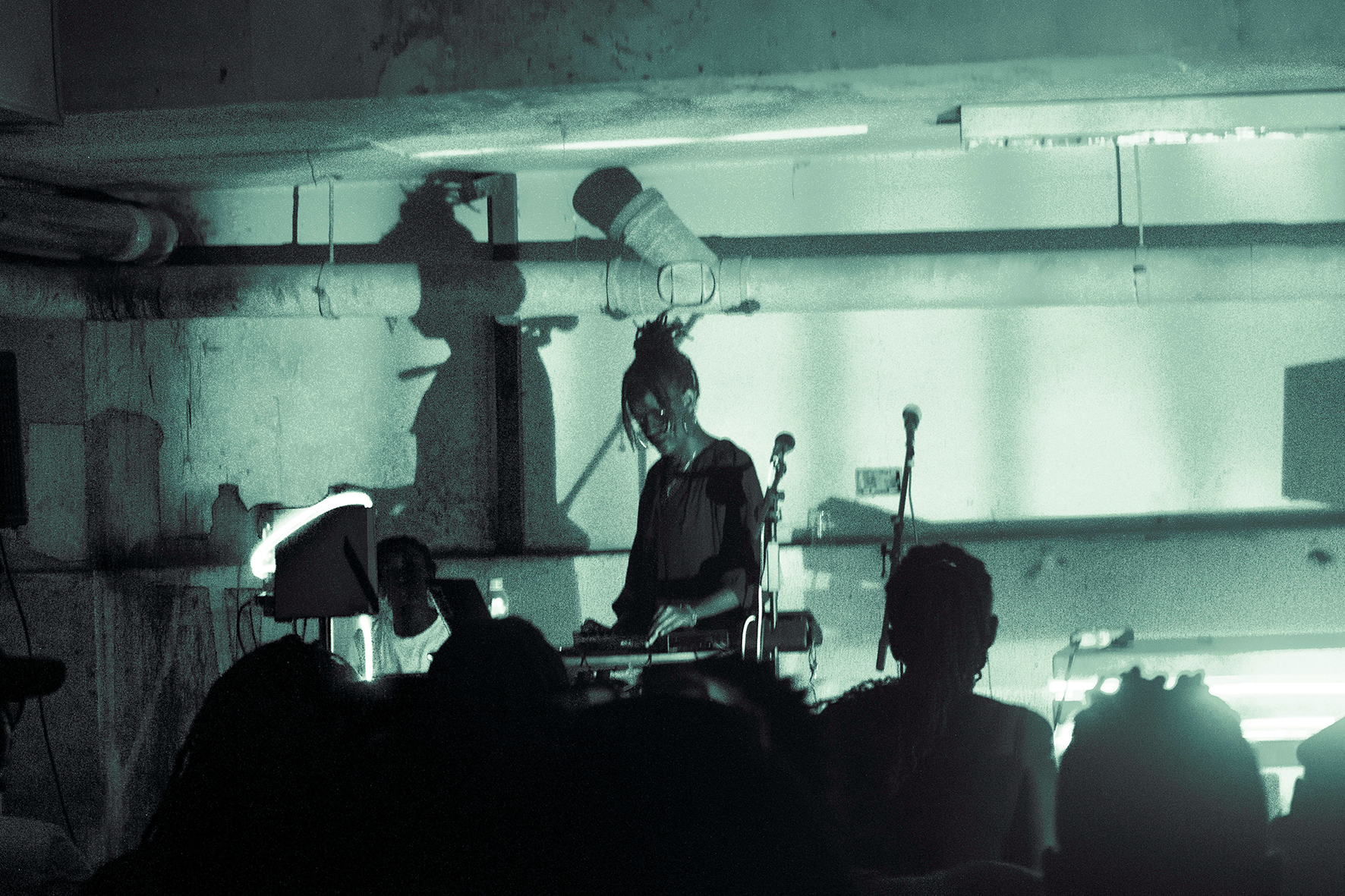
You’ve worked with notable ensembles around the world. Can you tell us how those collaborations worked?
“Making music feels like you just gave away a baby. I was thinking that on the Feeling Body release. It feels like a birthday or something. It’s so special. I think the one that feels most notable was Cello Octet Amsterdam and I performed with them for the Gaudeamus festival in September last year. The festival director had reached out to me and said ‘I love your record, can this be performed?’. I had been turning down performance requests because I had no idea how to perform the music. Then slowly it ended up being a very beautiful process.
“It felt less scary to figure it out with 11 musicians than alone but in retrospect with Peace Places, I see it as a record that works when I’m able to share it with other musicians. And I’m able to share who I am and where I’m from in that way. There’s something very vulnerable about the process of performing with people. And you can always tell when there are good hearts involved. The performance didn’t even matter. The best part was getting to do it together. Some of the rehearsals were six hours long and we were all connecting.
“In two weeks I’m performing Feeling Body in Brooklyn for String Theories 2023, but it’s really exciting to find a place where my classical and experimental side can meet. Although with Feeling Body I almost think it’d be better performed alone.”
You’ve said (somewhat comically!) that an inspirational moment for your career was when you attended a screening of a ‘bad’ film [Cirque De Soleil] as a kid and decided film scoring was for you…
“I think subconsciously, as a kid, I had decided that classical music only existed in films these days. It was only when I went to NYU that I realised that was wrong. There’s a whole world of concert composition that’s still bubbling. Same with films… there’s a whole world outside of the blockbuster films. I just saw the world of music and loved all of them. People have said my work is cinematic. I have just finished scoring a short film but I would certainly take on projects that I feel I resonate with. I’d love to work on movies that allow for something very weird, experimental.”
What else is on your wishlist, career-wise?
“I’m at a place where I have a bit of performance fever, for festivals in particular. I was nervous about working out a solo set last year. There are a lot of things from my classical background that I’ve had to unlearn with regards to performance and I’m starting to work out my performance identity. I want to go to Australia. I’ve been there before and I loved it. I’d love to get a sync, on something like Black Mirror.
“I’m about to make something for a residency in Helsinki, and working on what I hope will be my third record. I’d love to put out a concert collaboration with a hearty group of instruments. Writing for more musicians and seeing where that can go. I know it can get harder with putting it on tour. Lots of money involved. But I’d love to tour my music. I really appreciate making electronic music and resonating music with people who wouldn’t go to a concert hall.”
What would you save from your studio in a fire?
“Just my hard drive.”
Different scenario: your computer has been wiped of everything except one single plugin or folder?
“Sibelius! Such an expensive subscription!”
Nyokabi Kariũki's debut LP Feeling Body is out now on CMNTX.

